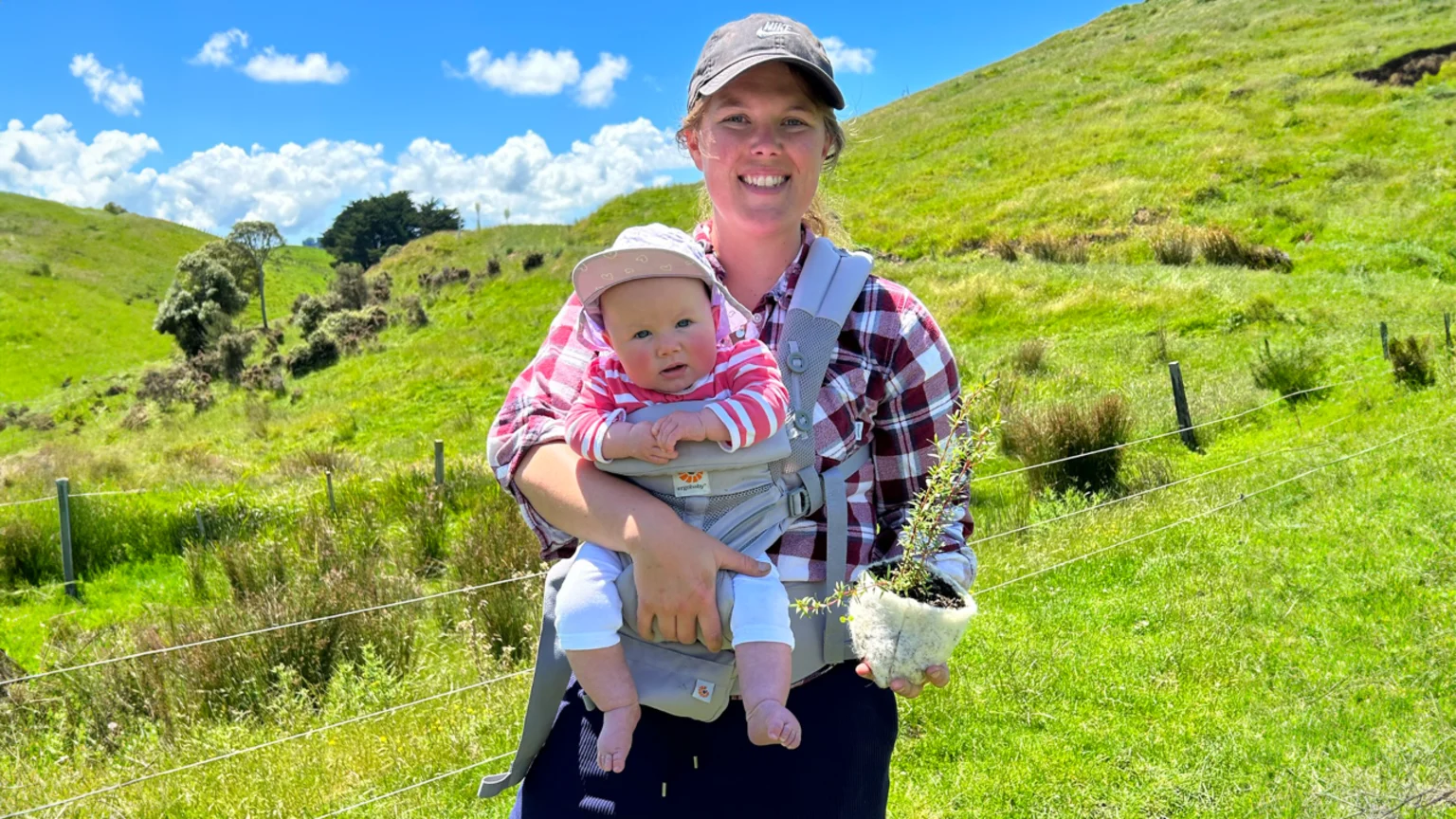Rural
Beyond Plastic: Hawke's Bay Farmers Forge A Greener Path For Tree Guards

Published by Dominic George
30 Apr 2024
Tree planting season is well underway around many parts of the country, and sheep farmers from Hawke's Bay Anastasia and Hayden Tristram have come up with an innovative product that could change the game when it comes to protecting new trees.
Anastasia Tristram shares the story behind her and her husband Hayden's innovative venture.
The couple, who own a farm in Hawke's Bay, devised a creative solution to tackle hill erosion by utilizing the wool from their sheep to create woollen tree guards for poplar poles. This eco-friendly alternative to plastic is not only beneficial for the environment but also contributes to the aesthetic harmony of the landscape.
Anastasia, whose diverse background includes stints as an army medic and educator, dives into the genesis of Floating Peaks Wool Products, emphasising the product's simplicity and ecological benefits.
"We knew Wool's a fantastic product... We came across felting as our process and we thought, hey, you know what, let's give it a whirl."
The wool guards can be easily slipped onto the poles "like a sock," offering a practical and biodegradable option for farmers. The product is accessible through their website, where they offer online purchasing and shipping.
Despite the challenges of managing a farm, a new business, and raising two young children, Anastasia's determination is unwavering.
"We love a challenge and I think what you put into life is what you get out. And here's that opportunity to try something, and we're not afraid to fail, but we don't see failure in our future," she declares with optimism.
The Tristrams' dedication to sustainability is also a focal point of the conversation. Anastasia explains the advantages of using wool over plastic, highlighting the importance of supporting the wool industry and reducing plastic waste.
"So [there's] roughly about a $0.90 to $1 difference, which, in the scheme of things, you're getting a natural, biodegradable alternative and then being able to support your own industry."
The Tristram's journey is presented as a beacon of hope and a model for others in the agricultural community who are looking to innovate and sustainably enhance their practices.
Anastasia's story exemplifies how diverse experiences can converge to create meaningful change, offering inspiration to fellow entrepreneurs and environmental advocates alike.
Listen to the full chat between Anastasia Tristram and Dominic George above.
To check out more episodes listen to the REX Podcast anytime on your favourite streaming platforms including Spotify, Apple Music and Rova.
Visit the Rural Exchange Facebook or Instagram page for more information and regular updates from the REX team.
Published by Dominic George
30 Apr 2024